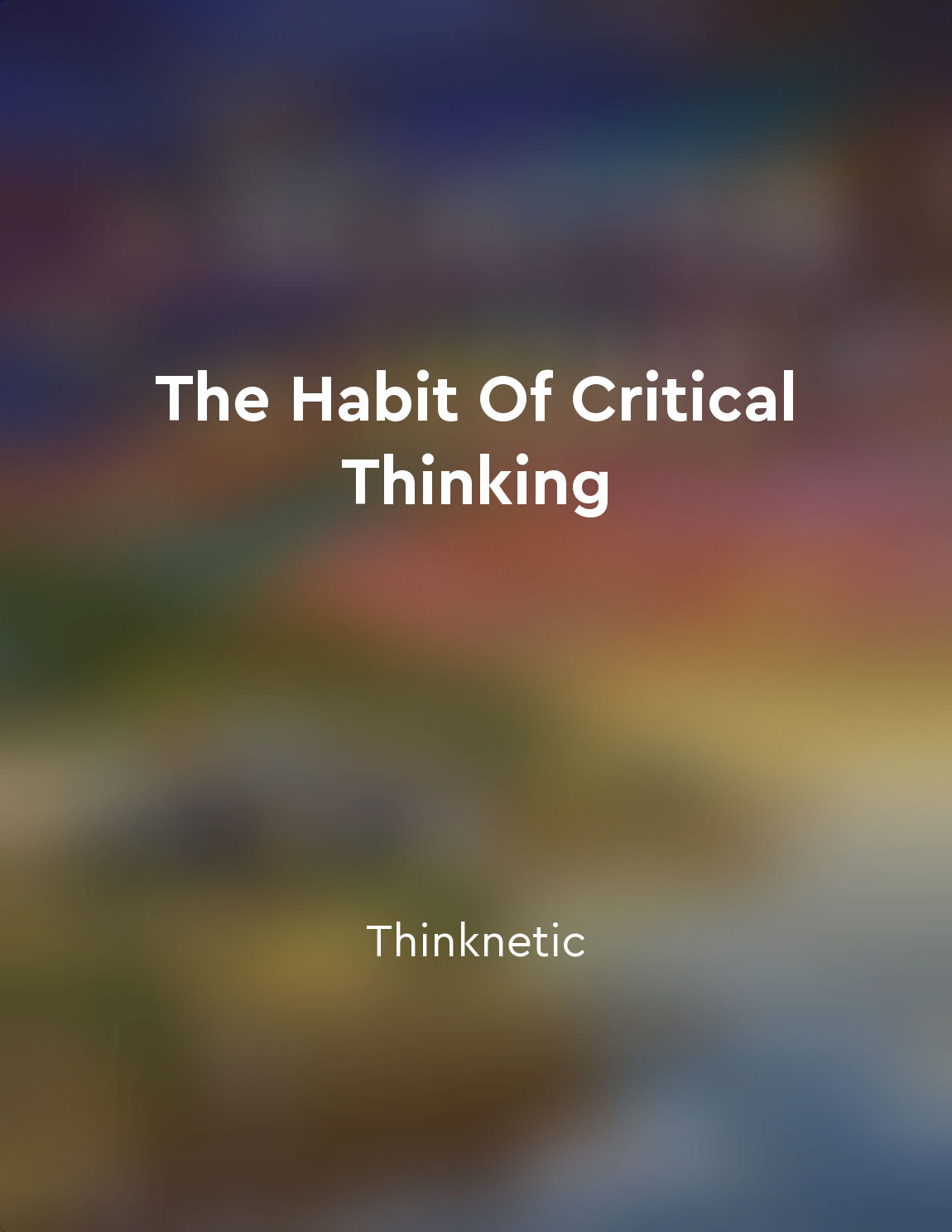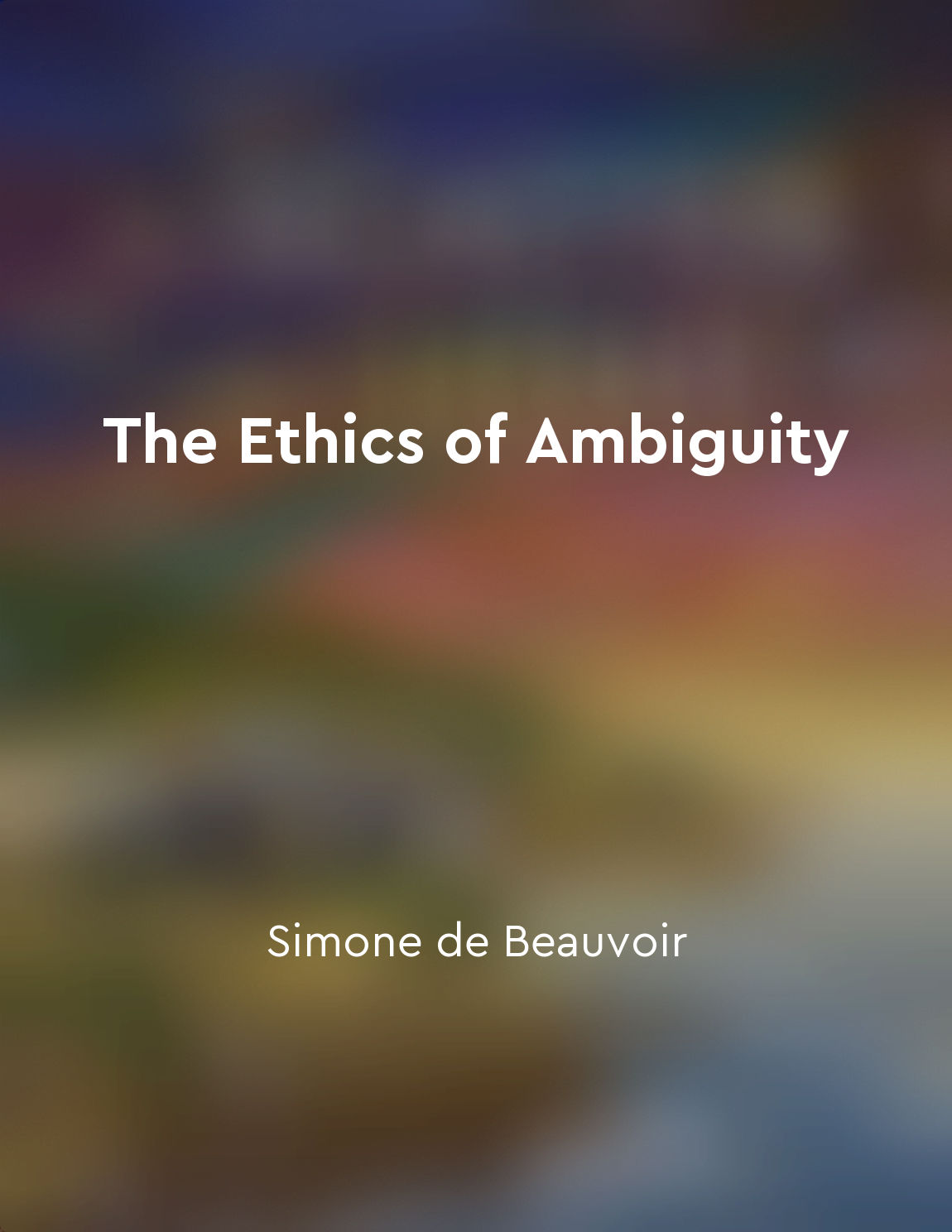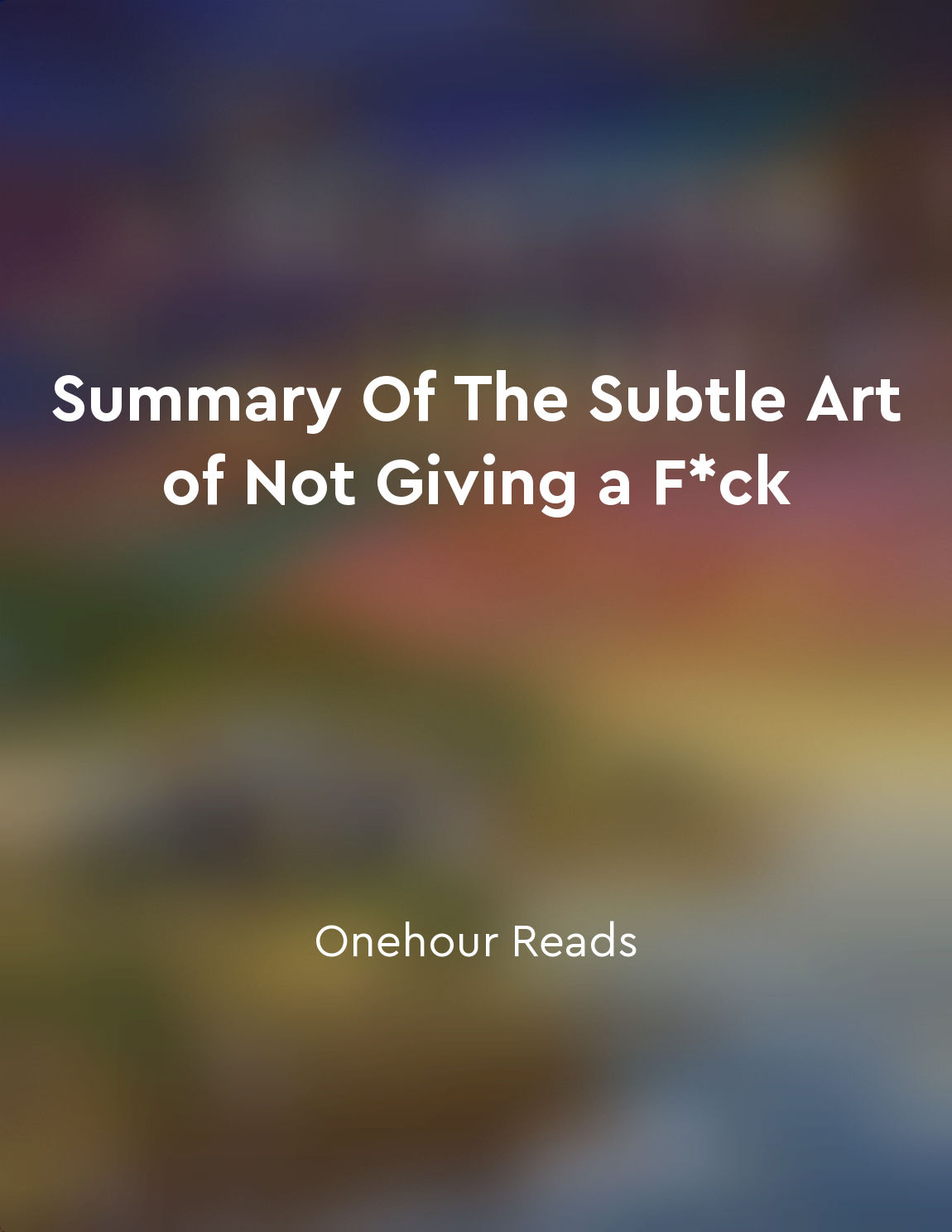Embracing ambiguity is a radical act of selfempowerment from "summary" of The Ethics of Ambiguity by Simone de Beauvoir,Bernard Frechtman
To embrace ambiguity is to confront the uncertainty and complexity of the world without seeking refuge in false absolutes or rigid beliefs. It is to acknowledge the inherent ambiguity of human existence and to resist the temptation to simplify or reduce it to a set of predetermined meanings. In doing so, one opens oneself up to the full range of possibilities and experiences that life has to offer. By embracing ambiguity, one rejects the notion that there is a single "right" way of being or knowing in the world. Instead, one acknowledges that multiple perspectives and interpretations can coexist simultaneously, and that truth is often subjective and contingent upon context. This recognition of the multiplicity of truths and meanings is not a sign of weakness or confusion, but rather a source of strength and empowerment. To embrace ambiguity is to embrace freedom and responsibility. It is to recognize that one's choices and actions are not predetermined by external forces or fixed moral codes, but are instead the result of one's own agency and autonomy. In accepting the uncertainty and complexity of the world, one takes ownership of their own life and destiny, and refuses to be a passive victim of circumstance. Embracing ambiguity requires courage and a willingness to confront the unknown and the unfamiliar. It demands an openness to change and transformation, and a readiness to adapt to new circumstances and challenges. It is a radical act of self-empowerment because it requires a willingness to take risks, to question authority and convention, and to chart one's own path in a world that is often unpredictable and chaotic. In the face of ambiguity, one must cultivate a sense of humility and openness, and be willing to listen to others with empathy and understanding. Rather than seeking to impose one's own beliefs or values on the world, one must be willing to engage in dialogue and exchange with others, and to be receptive to new ideas and perspectives. In this way, embracing ambiguity becomes not just a personal act of self-empowerment, but a collective act of ethical engagement with the world and with others.Similar Posts
Use questions to navigate change and uncertainty
Questions can play a crucial role in navigating change and uncertainty. They can help us uncover new possibilities, challenge o...
Trust in the present moment is transformative
Trust in the present moment is transformative. It is not something that can be forced or manufactured. It arises naturally when...
Embrace the power of resilience
Resilience is the ability to bounce back from challenges, setbacks, and failures. It is the mental toughness that allows indivi...
Take calculated risks
The idea of taking calculated risks is a crucial one in the world of creativity. It means being willing to step outside of your...

Practice selfreflection
Self-reflection is a crucial aspect of developing critical thinking skills. It involves taking the time to pause and examine ou...
Mimicking nature enhances resilience
When we observe nature closely, we see a multitude of intricate strategies that organisms have developed to survive and thrive ...

Society's expectations can lead to inauthentic choices
In a world where society's expectations constantly loom over our heads, it is easy to find ourselves making choices that do not...

Ethics are not universal, but contextdependent
Ethics are not fixed and unchanging principles that can be universally applied to all situations. Instead, ethical decisions ar...
Embrace your inner creativity
When you embrace your inner creativity, you are allowing yourself to tap into a wellspring of ideas and insights that can trans...

Stop caring about everything so much
The concept of not giving a f*ck is all about letting go of the things that don't truly matter in life. It's about realizing th...
